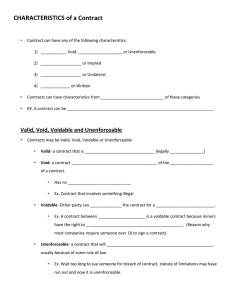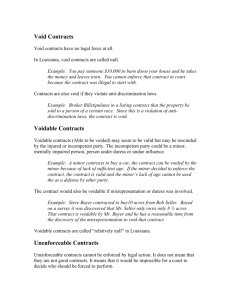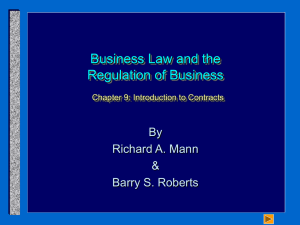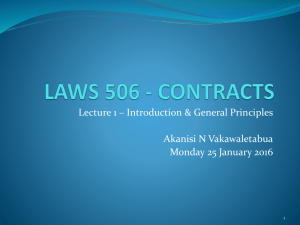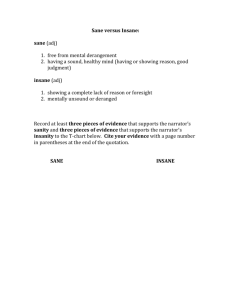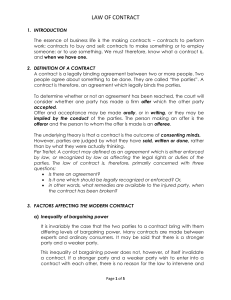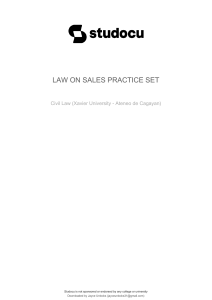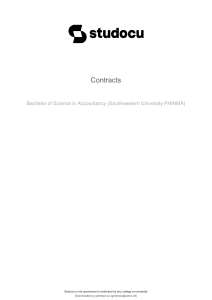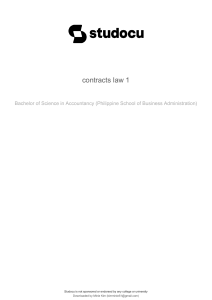Contract Law: Valid, Void, Voidable, Unenforceable Contracts
advertisement
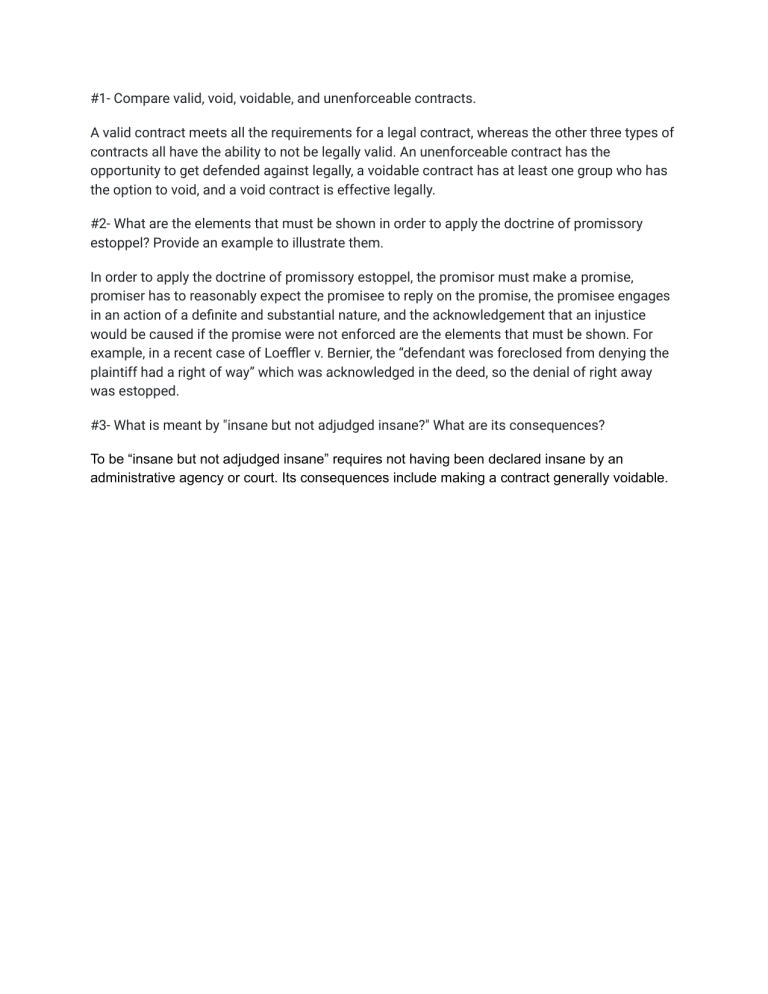
#1- Compare valid, void, voidable, and unenforceable contracts. A valid contract meets all the requirements for a legal contract, whereas the other three types of contracts all have the ability to not be legally valid. An unenforceable contract has the opportunity to get defended against legally, a voidable contract has at least one group who has the option to void, and a void contract is effective legally. #2- What are the elements that must be shown in order to apply the doctrine of promissory estoppel? Provide an example to illustrate them. In order to apply the doctrine of promissory estoppel, the promisor must make a promise, promiser has to reasonably expect the promisee to reply on the promise, the promisee engages in an action of a definite and substantial nature, and the acknowledgement that an injustice would be caused if the promise were not enforced are the elements that must be shown. For example, in a recent case of Loeffler v. Bernier, the “defendant was foreclosed from denying the plaintiff had a right of way” which was acknowledged in the deed, so the denial of right away was estopped. #3- What is meant by "insane but not adjudged insane?" What are its consequences? To be “insane but not adjudged insane” requires not having been declared insane by an administrative agency or court. Its consequences include making a contract generally voidable.
